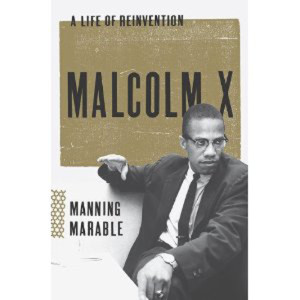
When you think of African American rights and activism, many people first think of Martin Luther King Jr., but others might recall another hero of African American rights, Malcolm X.
Much is known about the public speaker who was able to rally thousands of black Americans to follow his particular American dream. Although many have read his autobiography, Manning Marable’s new book shows there is much more to discover about Malcolm X.
Malcolm X was born Malcolm Little to an African American couple very much involved in the black rights movement known as Garveyism. We follow Malcolm through his younger years, already proving to be a born leader, and into his teenage years where he continuously rebelled and lived a life of debauchery.
It wasn’t until after spending time in prison that Malcolm began to make a religious turn around. He began to make the transition to the Muslim religion as taught by the NOI, Nation of Islam. Malcolm used his charm and oratory excellence to move his way up the ladder of the NOI, until he was the right hand man to the leader of the NOI, self-titled Elijah Muhammad.
As Marable recounts Malcolm’s life history as he becomes more and more involved with African American civil rights, he gives us an unbiased look at Malcolm’s actions and the feelings that may have driven him to act this way. Marable also compares some moments of his book to moments in Malcolm’s autobiography, making it very clear that Malcolm seemed to “forget” quite a few moments of his own life that put him in a bad light. Marable allows the reader to read about known and many unknown facts about Malcolm X’s life.
Marable manages to draw in the reader when retelling Malcolm’s personal life. His years as a young adult, his relationship with his wife, and his relationship with his family members and members of the NOI gives a real insight to the actual character of Malcolm X. You stop looking at Malcolm as a African American civil rights activist and start to see him as the racist he really was. Marable spends no time glorifying this man, as many have done in the past.
While Marable builds Malcolm’s character in a provocative way, he also builds the characters and events that surrounded Malcolm through his life. These details, however, become tedious and overly informative. Many of the characters backgrounds are unnecessary detailed and could be removed from this book and given their own short biography.
Even though Marable may have spent too much time dwelling on those around Malcolm X, he spent just the right amount of time telling the true events of Malcolm’s life that maybe Malcolm himself would have preferred never resurface. It is a true account of the human rights activist Malcolm X, warts and all.







